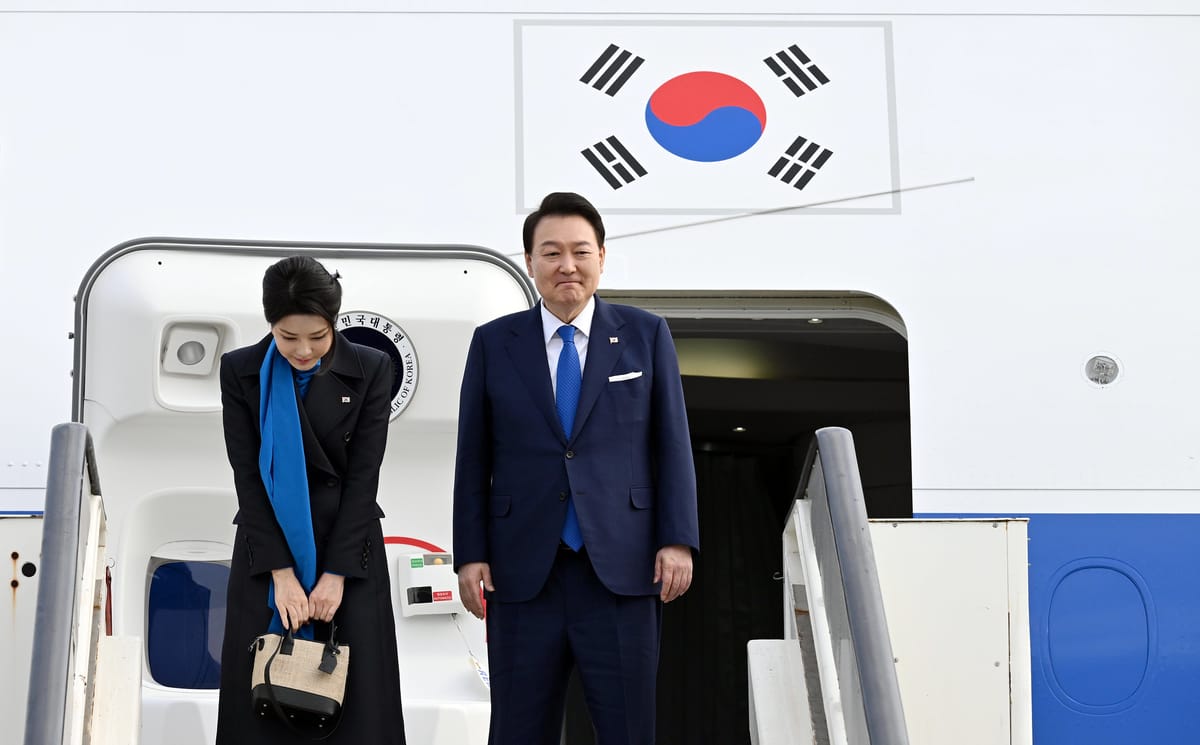Special Prosecutors, EV Subsidies, and Korean Food's Global Rise
Special prosecutor probes put President Yoon's leadership to the test, U.S. EV rules force Korean automakers to rethink China ties, and Korean cuisine goes globally mainstream as cultural exports boom.

Special Prosecutor Probes Put President Yoon's Leadership to the Test
President Yoon Suk-yeol is facing the biggest political crisis of his two-year-old administration as special prosecutors launch wide-ranging investigations into First Lady Kim Keon-hee's alleged improprieties and the suspicious circumstances surrounding the death of a Marine Corps private. The twin probes, authorized by the opposition-controlled National Assembly despite Yoon's vetoes, have the potential to implicate the president himself in abuse of power and cover-ups.
The allegations that have fueled public outrage and demands for special prosecutors are serious. In the case of Kim Keon-hee, leaked recordings suggest that she received luxury bags from an acquaintance and then sought to conceal the gifts and intimidate whistleblowers. As for the Marine Corps incident, the bereaved family of Private Chae and sympathetic lawmakers believe that the military and Blue House interfered in the investigation of Chae's death during a brutal disciplinary action, possibly at the direction of Yoon or his top aides.
The two special prosecutor teams will have 120 days and sweeping authority to subpoena documents, question witnesses, and execute searches and seizures. The legislation specifically empowers them to target the president's office and senior government and military officials. While Yoon and his inner circle are expected to mount legal challenges and public relations campaigns to discredit the investigations as politically-motivated, the prosecutors are vowing to pursue the evidence wherever it leads.
Digital forensics experts are likely scouring phone records, CCTV footage, military communications, and financial documents for incriminating details. Key advisors and confidants of the first couple may be summoned for interrogations or surprise raids in the coming weeks. Any indictments or revelations of clear misconduct could deal a devastating blow to Yoon's efforts to assert his authority and advance his policy agenda amid low approval ratings and a hostile parliament.
In a worst-case scenario for Yoon, the special prosecutors could build an impeachment case if they uncover incontrovertible proof that the president or first lady broke laws and abused their power. While Yoon's party still has enough votes to block impeachment, the political damage could force him to resign or leave him an ineffective lame duck. On the other hand, if the probes fail to find a smoking gun, Yoon may claim vindication and accuse his opponents of wasting taxpayer money on a witch hunt.
As the special prosecutors start their work in earnest, the entire Korean political establishment will be watching breathlessly for the next shoe to drop. The outcome of these investigations could redefine the Yoon administration and shift the balance of power ahead of the next presidential contest in 2027.
U.S. EV Rules Force Korean Automakers to Rethink China Ties
South Korean automakers find themselves at the mercy of U.S. policymakers as they adapt to the strict electric vehicle subsidy rules under last year's Inflation Reduction Act. The new law provides generous tax credits of up to $7500 to American consumers who purchase EVs that meet stringent requirements for domestic battery production and material sourcing. Vehicles with too many Chinese components are excluded from the subsidies.
This poses a serious challenge for Hyundai, Kia, and other Korean car companies that have become heavily reliant on China for key battery materials like graphite. Last year, an astounding 97% of the natural graphite used in Korean EV batteries came from Chinese sources. Korea's battery giants like LG Energy Solution and SK On have also established extensive production bases in China to supply both Chinese and overseas markets.